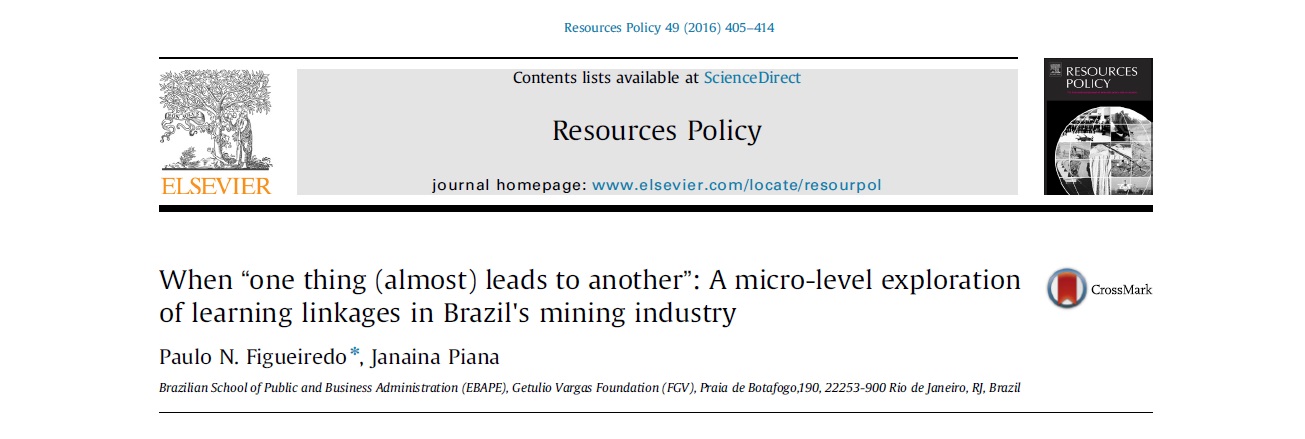
This paper explores the nature of learning linkages through a qualitative and empirically grounded study of three sets of interactions in Brazil’s mining industry and finds that: (1) these linkages vary along a spectrum of progressive levels of knowledge intensity, provide a basis for cumulative innovative activities within the mining industry, and are likely to influence innovation in other industries; (2) however, there is local failure for either the government or large corporations to implement proactive policies to support these linkages; (3) nevertheless, an intrinsic motivation among industry stakeholders (including universities) to develop these linkages through relational embeddedness exists, as they react to creative knowledge needs and pressures for cost-reduction or seek to grab opportunities; as such, relational embeddedness appears to offset the absence of policies. However, proactive policies are needed for the expansion and long-term sustainability of these linkages. Policymaking should include government and large mining firms, as well as local suppliers and universities, and build on intrinsic motives and small achievements incrementally. This paper contributes to extending our understanding of the intricacies of learning linkages development in the mining industry. Understanding and illustrating this process is key to strategize policies oriented to industrial development, particularly in resource-rich developing countries.
Figueiredo, P. N. & Piana, J. (2016). When “one thing (almost) leads to another”: A micro-level exploration of learning linkages in Brazil’s mining industry. Resources Policy, 49 (3): 405-414 DOI: http://dx.doi.org/10.1016/j.resourpol.2016.07.008